Latest

Hiding in plain sight: The YouTubers' crowdfunding piracy
I never imagined I would be watching Kitchen Nightmares, starring the world-renowned chef Gordon Ramsay, in my downtime on YouTube. I knew of Ramsay and his ruthlessness from shows like Hell's Kitchen, but I had never heard of Kitchen Nightmares until a few weeks ago, when an episode popped up on YouTube's Trending section. Next thing you know, I'm hooked and watching full episodes of it on my phone instead of the usual sneaker videos. But aside from Ramsay's rants at owners of filthy restaurants, something else caught my attention -- these uploads weren't from Fox, which owns the rights to the show in the US. Instead, they were from an unofficial channel called "Kitchen Nightmares Hotel Hell and Hell's Kitchen." And as if that wasn't brazen enough, the owner explicitly asked viewers for donations to fund the uploading of copyrighted content.
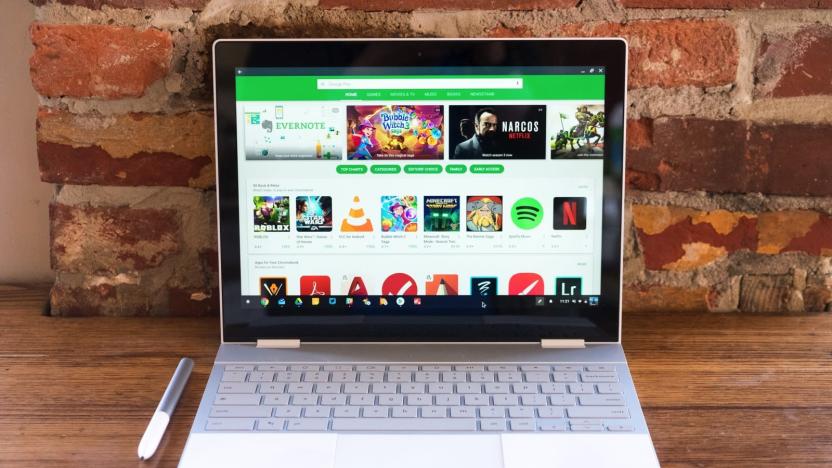
Google adds screen time management to Chromebooks
When Google brought its Family Link parental controls to Chromebook, they weren't all that useful because there were limited options available. Now, Google is offering parents more tools to supervise how their offspring use their laptops.
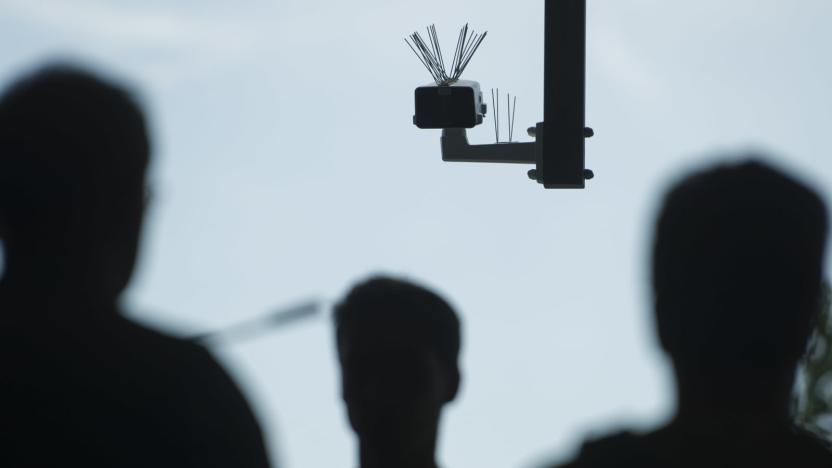
Google pledges to hold off on selling facial recognition technology
Today, Google shared information about some of the AI work it's doing in Asia, but in a blog post about the work, it also made a pretty clear statement about how its facial recognition technology will and won't be used for the time being. The company noted that while facial recognition systems stand to be quite useful in a variety of situations, from assistive technologies to locating missing people, they also comes with risks. "Like many technologies with multiple uses, facial recognition merits careful consideration to ensure its use is aligned with our principles and values, and avoids abuse and harmful outcomes," Google said. "We continue to work with many organizations to identify and address these challenges, and unlike some other companies, Google Cloud has chosen not to offer general-purpose facial recognition APIs before working through important technology and policy questions."

YouTube Music offers charts for the hottest songs and videos
If you thought YouTube's music video charts would be a logical fit for YouTube Music, you guessed correctly. The streaming media giant is rolling YouTube Charts into its Music service as playlists that you can find either on the app's home screen or through a search. If you want to listen to the most popular or trendiest songs, they should be a short hop away. All 29 YouTube countries will have both global and local versions of the top 100 songs and top 100 videos, and you'll also find a local-only top 20 trending list.

Google Assistant can now speak with an Australian or English accent
Google Assistant hasn't been traveling, but it has picked up some new accents. The voice assistant now has the ability to speak in an Australian or English accent (though Google calls it British). The feature is available across all devices including Android phones and Google Home speakers, but only for English speakers in the US for the time being.
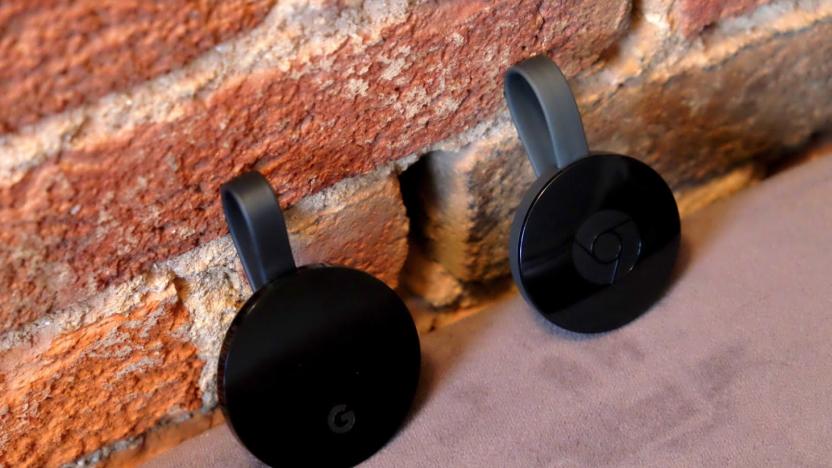
Amazon finally puts Google's Chromecast back on its virtual shelves
You can now get a Google Chromecast from Amazon just in time for Christmas. Sure, you can buy the streaming device from the Play shop and other retailers, but this could be a lot more convenient if you want to take advantage of Prime shipping. Amazon pulled Chromecast and Apple TV listings from its website back in 2015, citing their lack of Prime Video support. It promised to bring them back in December 2017 after the animosity between the companies started cooling down, but as Android Police noted, Chromecast listings showed that the devices were "Currently unavailable" until now.
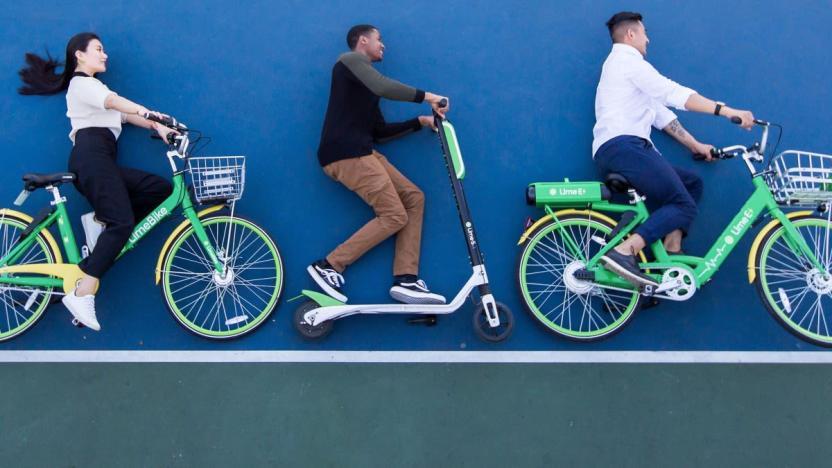
Google Maps can find you a nearby Lime scooter or bike
Google Maps is always ready to help you get where you're going, and the latest addition to its list of features is a tie-in with one of those electric scooter companies that have left their machines laying all over. Now, if you've looked up a route on Google Maps and have decided that walking is too slow and other means of transportation won't work, it can direct you to nearby Lime scooters or bikes.
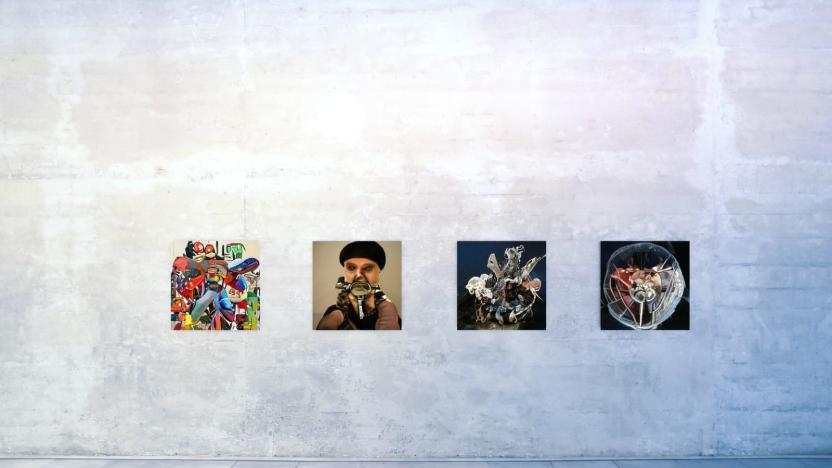
'AmalGAN' melds AI imagination with human intuition to create art
Don't worry, they only look like the Pokemon of your nightmares. The images you are about to see are, in fact, at the very bleeding edge of machine-generated imagery, mixed with collaborative human-AI production by artist Alex Reben and a little help from some anonymous Chinese artists. Reben's latest work, dubbed AmalGAN, is derived from Google's BigGAN image-generation engine. Like other GANs (generative adversarial networks), BigGAN uses a pair of competing AI: one to randomly generate images, the other to grade said images based on how close they are to the training material. However, unlike previous iterations of image generators, BigGAN is backed by Google's mammoth computing power and uses that capability to create incredibly lifelike images. But more important, it can also be leveraged to create psychedelic works of art, which is what Joel Simon has done with the GANbreeder app. This web-based program uses the BigGAN engine to combine separate images into mashups -- say, 40 percent beagle, 60 percent bookcase. What's more, it can take these generated images and combine (or "breed") them into second-generation "child" images. Repeating this breeding process results in bizarre, dreamlike pictures. Reben's contribution is to take that GANbreeder process and automate as much of it as humanly possible. Per the AmalGAN site, 1. an AI combines different words together to generate an image of what it thinks those words look like 2. the AI then produces variants of those images by "breeding" it with other images, creating "child" images 3. another AI shows the artist several "child" images, measuring his brainwaves and body-signals to select which image he likes best 4. step 2 and 3 are repeated until the AI determines it has reached an optimal image 5. another AI increases the resolution of the image by filling in blanks with what it thinks should exist there 6. the result is sent to be painted on canvas by anonymous painters in a Chinese painting village 7. a final AI looks at the image, tries to figure out what is in it, and makes a title The first two steps are handled by GANbreeder. "As far as I understand it, right now [GANbreeder mixes images] randomly," Reben told Engadget. "So it decides to either increase or decrease the percentages of the two images or add new models. You know, like 5 percent cow, and that'll be one of the images that it shows." Once the system has conceived a sufficient selection of potential pictures, Reben pares down the collection using a separate AI trained to determine how much he likes a specific piece based on his physical reaction to it. "I trained a deep learning system on the body sensors that I was wearing," Reben explains. "I had a program show me both good and bad art -- art that I liked, and art that I didn't like -- and I recorded the data." He then used that data to train a simple neural network to figure out the physiological differences between his reactions. "Basically, it gives you that sort of dichotomous indication of what this art is [to me] from my brain waves and body signals," he continued. "It picks up on EEG; I also have heart rate and GSR. I think I might also add facial-emotion-recognition stuff through my webcam." The selection process varies between image sets, Reben said. Sometimes the "right" picture would appear among the first presented by the AI; others required him to dig through multiple generations of child images to find one he liked. Once he's selected the specific images he plans to include in the official project, Reben has the digital images oil painted onto canvas by anonymous Chinese artists. "The easiest 'why' is because I can't paint," Reben quipped. "Using anonymous Chinese painters is another link in this autonomous system, where my hand is not on the artworks -- just my brain and my eyeballs." Transferring the works to a physical medium also helps sidestep an inherent shortcoming of the BigGAN system: The fact that the images are so resource-heavy to produce, they've yet to be created at a size larger than 512 x 512-pixel resolution. The anonymous artists are "basically using human brain power to upscale that image into a canvas," he said. "So that aspect of it is also interesting because there's gonna be a little bit of human interpretation." Finally, Reben uses Microsoft's CaptionBot AI to create titles for each image. "I thought it was interesting removing more and more of a human from the process," Reben concluded. "I also like seeing what the AI interprets these as ... because it doesn't catch everything." For now, the BigGAN engine doesn't have very many practical applications, and its research paper, which was published in September, is under review for a 2019 AI conference. The system itself has a bit of a counting problem, as evidenced by its continual insistence that clock faces have more than two hands and spiders have anywhere from four to 17 legs, but these idiosyncrasies could prove a boon to artists like Reben and Simon. "One of the things Joel [Simon] is doing... is he would like to turn that tool that website into a tool for creative people," Reben said. Artists would be able to train the system on their own images, not just Google's stock set, experiment with the output levels, and "use it as a way to sort of spark imagination and creativity, which I think is great." If you're interested in getting prints of any of these pieces, check out the Charles James Gallery.
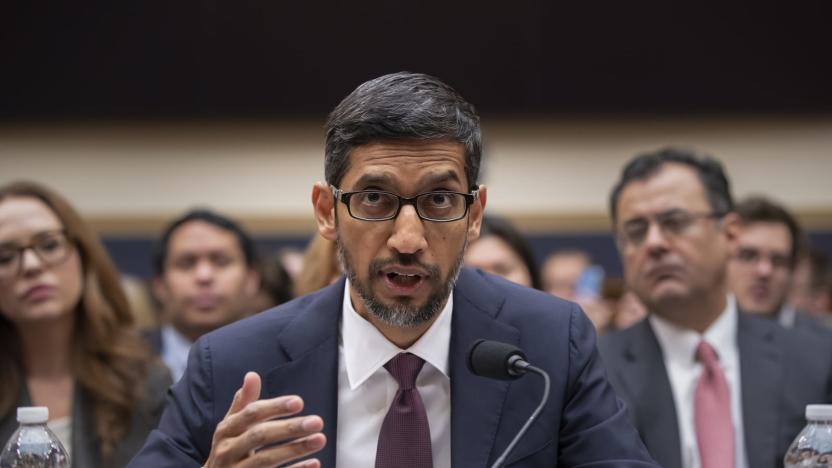
Calling Google biased won't alter the truth
We all know how these things play out: A tech CEO is sworn in and then is railed at for a couple hours. Some of the representatives will rage against what they see as unfairness, some will scream bias and others will print out pages from conspiracy theory websites. If we're lucky, we'll get a question about something that's pertinent, although it's rarely followed up on.
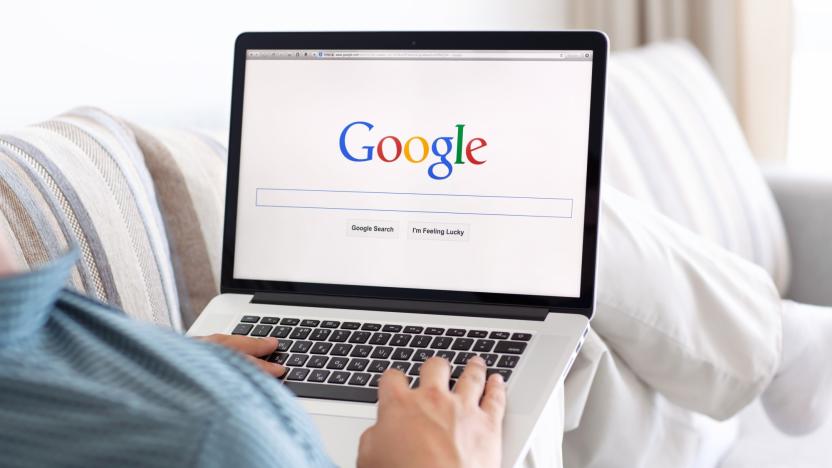
Shocking deaths top Google's trending searches in 2018
As is the annual tradition, Google has released its list of top trending searches for the year. If 2018 was dominated by anything, it was untimely and unexpected celebrity deaths. The top 10 trending searches included DJ and musician Avicii, rapper Mac Miller, legendary comics creator Stan Lee, celebrity chef Anthony Bourdain, controversial rapper XXXTentacion, theoretical physicist Stephen Hawking, and fashion designer Kate Spade -- all of whom passed away during the year.
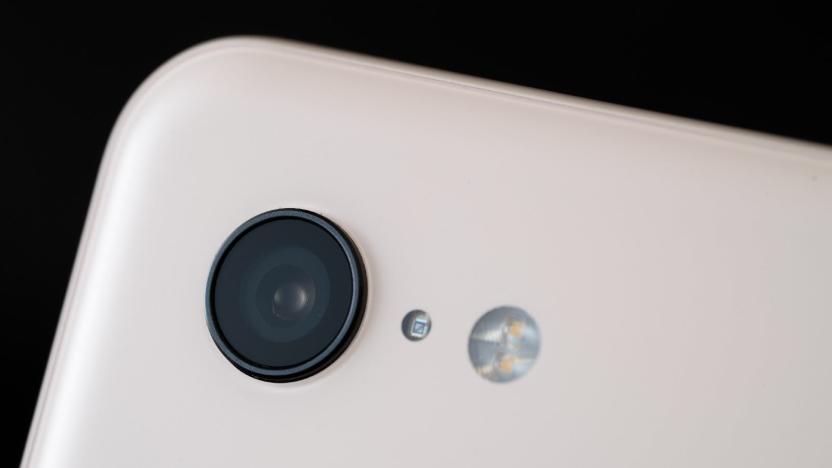
The Pixel 3 has 2018’s best smartphone camera
Let's be honest. We're a generation obsessed with taking and sharing photos. In recent years, our phone cameras have become so capable they've essentially killed point-and-shoots. This year, Huawei released a phone with three cameras on its rear, forcing us to wonder if we have officially gone too far with our sensor obsession. But companies like Apple and Google continue to prove that good software is a key part of a solid camera while Samsung's flagships remind us that there is room for innovation in mechanisms like dual aperture and dual-pixel autofocus. Ultimately, though, the best camera would deliver a mix of clever software with high-quality glass, and 2018's flagships did not disappoint.
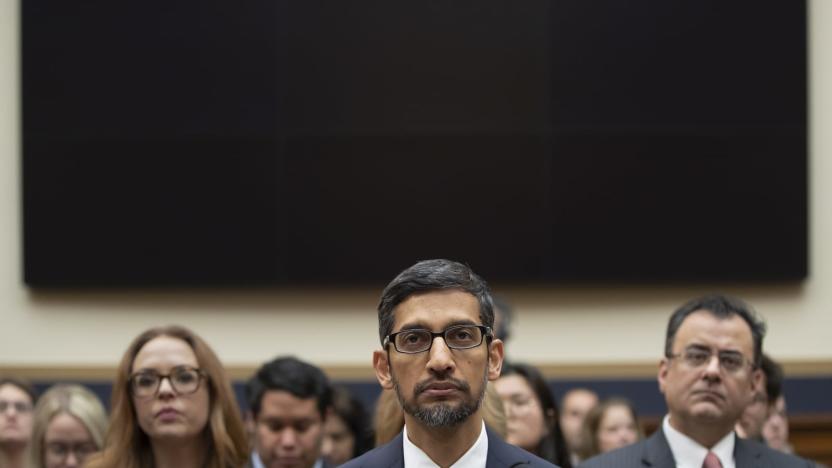
Congress grills Google CEO over Chinese search engine plans
If you were hoping that Google chief Sundar Pichai would shed more light on his company's potential censored search engine for China... well, you'll mostly be disappointed. Rhode Island Representative David Cicilline grilled Pichai on the recently acknowledged Dragonfly project and mostly encountered attempts to downplay the significance of the engine. The Google exec stressed there were "no plans" to launch a search engine for China, and that Dragonfly was an "internal effort" and "limited" in scope.
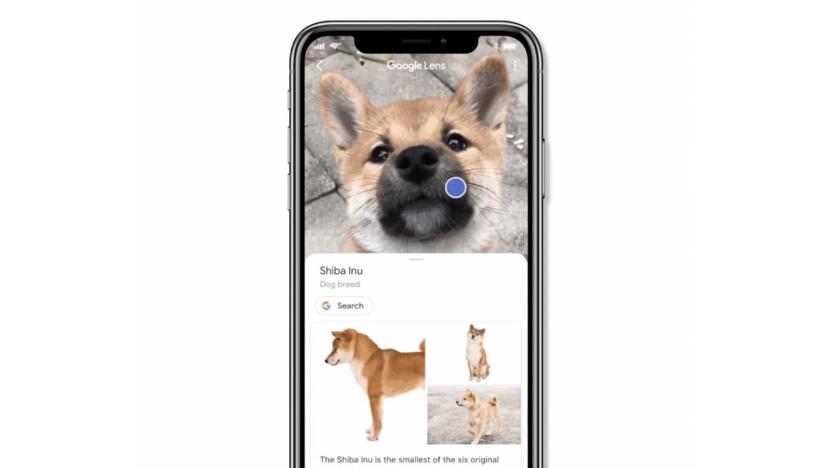
Google adds Lens to its iOS search app
You no longer have to fire up Google Photos if you want to use Lens searches on your iPhone. Google has rolled the AI-based feature into its iOS search app, putting it in a more logical place than your image library. Tap the Lens icon in the search bar and you can point your device camera at books, bottles, pets and various other objects to get more answers about what you see. You can tell Lens to look at your existing images or turn on the flash when it's too dark.

YouTube bans the founder of far-right group the Proud Boys
The Proud Boys have lost another online platform, though this time it's not for the far-right group's hate speech and support for violence. YouTube has terminated Proud Boys founder Gavin McInnes' account following "multiple third-party claims" of copyright violations. The company didn't name the specific violations in a statement to CNET, but it did say that it pulls the accounts of "repeat offenders."

Another Google+ data bug exposes info for 52.5 million users
Google's semi-defunct social media platform Google+ has suffered its second data breach in three months and, as a result, will be completely shuttered in April, four months earlier than previously planned.
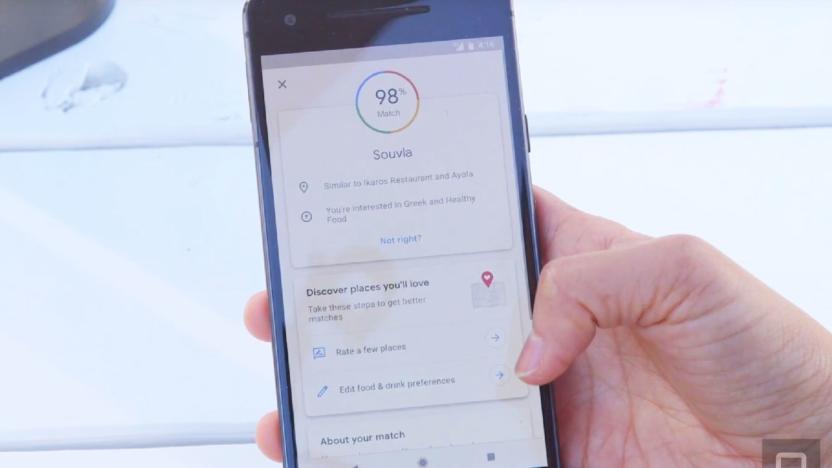
Google Maps for iPhone now includes personalized recommendations
Earlier this year, Google redesigned Maps to add a bunch of features, including personalized suggestions based on your tastes and interests. Now, that feature will be more broadly available as Google is bringing the For You tab to iOS in more than 40 countries, and more than 130 additional nations on Android.

Google's Mountain View development plans include affordable housing
Google is still tweaking its Mountain View expansion plans, and the public just got a clearer glimpse of what those changes could entail. The city has published a Google development proposal for the North Bayshore area that would at least partially address the San Francisco Bay Area's housing problems. The 3.12 million square foot project would include up to 8,000 new residential units, 6,600 of which would sit on Google's own land. About 20 percent of those would be marked as affordable housing, including rental units that could be affordable for individuals making $44,000 per year.

Google's rumored Pixel 3 'Lite' XL might ditch the notch
There's been talk (and apparent leaks) of a mid-range Pixel 3 variant, but what about an equivalent to the larger Pixel 3 XL? That might be coming too. OnLeaks and 91mobiles claim to have details of a Pixel 3 'Lite' XL (just a placeholder name for now), and have produced renders to match. The larger handset would move up to a 6-inch, 2,220 x 1,080 screen (versus the 6.3-inch, 2,960 x 1,440 panel on the Pixel 3 XL) but would otherwise resemble its smaller counterpart, including the plastic chassis. And notably, that would mean dropping the regular Pixel 3 XL's notch -- you'd 'only' have one front camera, but you also wouldn't have a conspicuous protrusion into your screen.
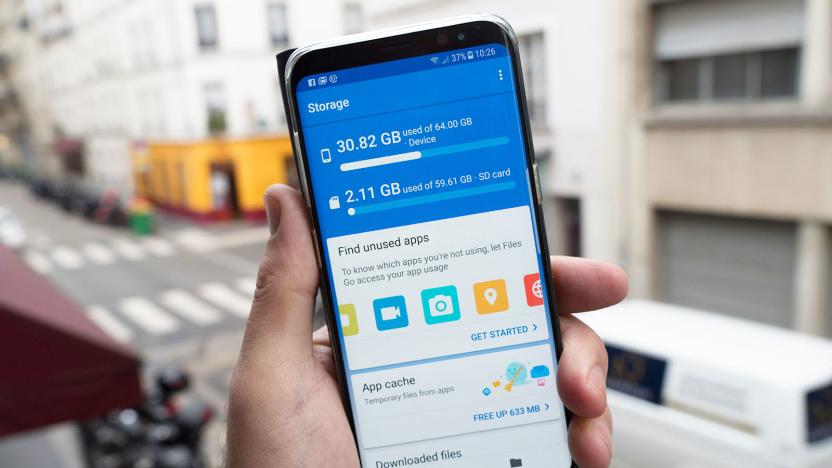
Google's Android file manager now supports USB drives
Files by Google (formerly Files Go) is helpful if you want an official means of managing the files on your Android phone, but there's been an obvious limitation: you couldn't move files to physical storage beyond the phone itself. You won't have that issue from now on. Google has released an update to Files that introduces support for external storage using USB On-the-Go. If you want to offload photos to a thumb drive, you won't have to track down third-party software.

Google winds down support for Android 4.0 Ice Cream Sandwich
If you're still hanging on to a phone running Android 4.0 Ice Cream Sandwich, you might want to budget for an upgrade. Google has warned developers that it's deprecating support for Ice Cream Sandwich in upcoming versions of Play Services, the framework that gives Android apps and devices access to key features without requiring full-fledged operating system updates. Existing developer kit elements will continue to work, and individual components may continue to support the OS going forward, but "many" newer toolkit iterations will require at least Android 4.1 Jelly Bean.









